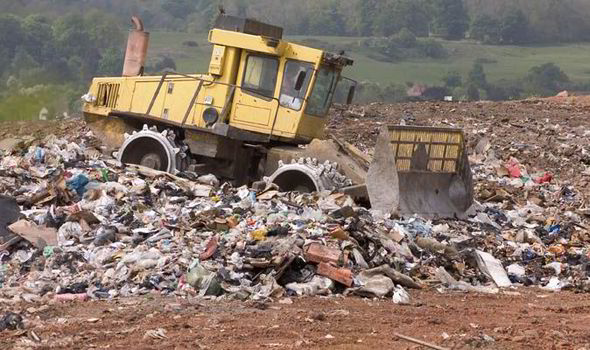City of Bristol, BVU Authority agree to benzene removal plan at landfill

The City of Bristol, Virginia failed to establish effective controls and risk management practices to remove benzene from its landfill—that is part of the information reported by the BVU Authority who has a deal with the city for effective removal.
The Authority reported high levels of the chemical through multiple violation notices issued in 2018 long before widespread complaints from the site’s odors.
Authority CEO Don Bowman said the agreement comes with specific timelines and outcomes that must be met.
Here is the official statement sent out by BVU on Friday:
Today, the City of Bristol, Virginia (“City”), and BVU Authority (“BVUA”) reached an agreement on benzene removal in the City’s landfill wastewater discharge to BVUA. BVUA issued the Compliance Order and Agreement (“Agreement”) based on the City’s failure to establish effective controls and risk management practices related to benzene levels in its wastewater discharge.
BVUA, in conjunction with InfraMark, its Joint Wastewater Treatment Plant operator, monitors limits on industrial discharge and issues remediation activities to ensure the discharge meets water quality limits and protects public health.
In 2018, BVUA first reported high benzene detection to the City through multiple Notices of Violation (NOVs) reports. These reports were issued well before the community’s widespread landfill odor complaints. Previously, BVUA sent NOVs directly to the City’s Environmental Health and Safety Officer. As part of a revised standard process, BVUA now submits all NOV documentation directly to the City’s Manager/Attorney who is responsible for official response. In addition, BVUA provides copies of NOVs to the Virginia Department of Environmental Quality (DEQ), HOPE for Bristol, and local media representatives.
After executing the Agreement, BVUA President and CEO, Donald Bowman, said, “Currently the City has not identified the source of the benzene. Until reduced or eliminated, the City must pretreat their wastewater to reduce benzene. The parties agree there are commercially available technologies the City could pursue. Benzene is a carbon-based derivative with a weak chemical attraction to water that evaporates quickly into the air quickly. One common industrial treatment method is ‘air stripping,’ although it is ultimately the responsibility of the City to collaborate with their engineers to identify the right methods and pretreatment processes to return the landfill to compliance with their benzene discharge permit requirements.”
The Agreement requires the City to take comprehensive corrective actions to address deficiencies, implement controls, and risk management practices on benzene levels. The Agreement also limits wastewater volumes and flow rates through an equalization flow tank. The priority is removal of the benzene as soon as possible.
“To our knowledge, this action is the first regulatory action identifying specific timelines and outcomes. Alongside the community, BVU looks forward to the City completing the requirements outlined in the Agreement,” continues Bowman. “We hope the City’s will work to resolve this issue well in advance of the established deadlines. They are required to report their progress monthly.”
(IMAGE: Bristol Broadcasting Company News Archives)

